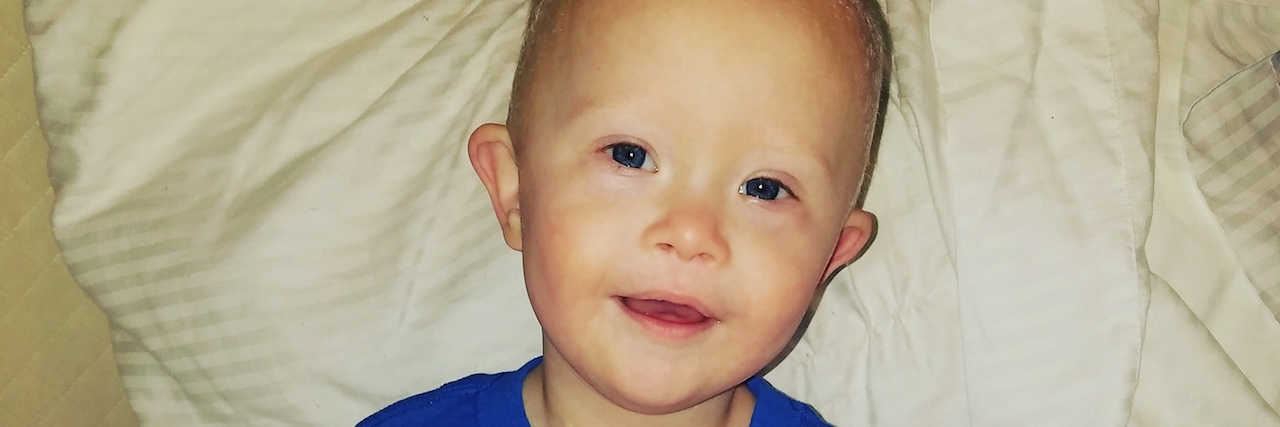We’ve all experienced the awkward silence that occurs when somebody injects something ridiculously inappropriate into the conversation. But when you have a child with Down syndrome, “word vomit” takes on a whole new meaning. It puts people on the spot. Nobody has ever rehearsed their response to finding out a baby or child has Down syndrome. Some people don’t even know what Down syndrome is! They might think they do. They might be able to pick someone with Down syndrome out of a crowd. But more often than not, they know just enough to have the confidence to blurt out something totally inappropriate — and leave feeling proud of it. Words of comfort coming from well-intended individuals can leave you speechless, among several other things, but comforted usually doesn’t make the list.
I feel as though I’ve heard it all, but I would be naive to believe that. After all, my son Gavin is only 18 months; we have a lifetime of foot-in-the-mouth incidents to experience. “I’m so sorry.” “That must suck!” “At least he will always be ‘young.’” … That’s just to name a few.
There was a comment made months back that has always stayed with me for a reason I can’t explain. “Oh, I never would have guessed. At least you can’t tell.” At least you can’t tell… I was left repeating that to myself several times. Now, let me start off by saying that, no, I cannot tell. When I look at Gavin, all I see is Gavin. I see my son, and that’s it. Does that mean I think he doesn’t possess any physical traits of Down syndrome? No. In fact, I know he does. It’s why the doctor became suspicious of it in the hospital, and why strangers are able to know his diagnosis without me saying a word.

But why do I not want people to be able to tell? Why is that my saving grace? It is like she said to me, “Oh, never mind all the things he has overcome. Never mind all the things he has accomplished. Never mind all the hearts he has touched. That would be a horrible thing to be identified by, so thank God you can’t tell.” Or did she mean, “Oh, people with Down syndrome do not meet mine, nor the world’s, beauty standards. Their value is therefore decreased. These are things that make someone socially acceptable. I do not want him to be robbed of those things, therefore, thank God you can’t tell.” Do I think this is how she intended her remark to be taken? Of course it isn’t! But it’s how I heard it nonetheless.
Gavin will grow into a man. He will grow into a man with Down syndrome — a man who looks like he has Down syndrome. And when that day comes, will I jump out of bed and exclaim, “Oh no! Now you can tell!”? Definitely not. I don’t exactly know why she said this or what her point was. I love my child with Down syndrome. I do not love him despite his Down syndrome. If your child was born with blonde hair, but you were really expecting a child with brown hair, would you walk around hoping nobody could tell? Would you think, “Maybe if I don’t discuss it, nobody will know.” No, you wouldn’t. Because that is silly. You thought your child would have brown hair, but they don’t. They have blonde hair, and that is perfectly, beautifully, blissfully OK. I thought my child would have 46 chromosomes, but he doesn’t. He has 47, and that is OK.

My child is so much more than his extra chromosome, whether you can “tell” or not. He is a fighter, a survivor of cancer, a hard worker. He has more determination than many adults I have met. He has a beautiful smile, an infectious giggle, and his hugs alone can mend a broken heart. And I hope you can tell.
Follow this journey on Mothering When Life Happens.
Have you seen the first film with a national release to star a person with Down syndrome? Check out the film “Where Hope Grows” today!

